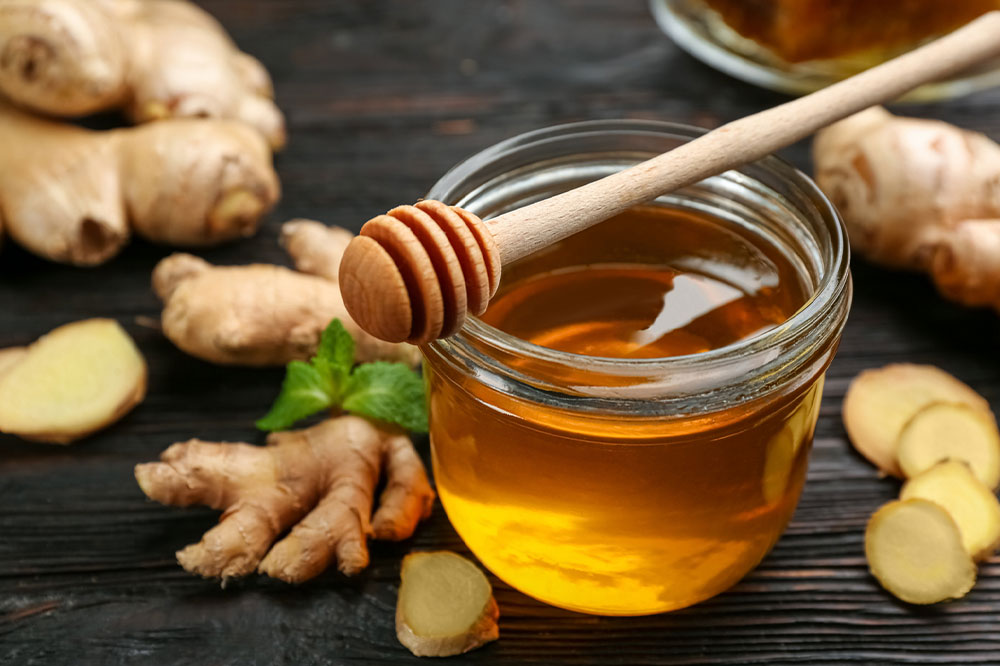
Causes, symptoms, and home remedies for cough
Dealing with an incessant cough can be incredibly bothersome, interrupting your daily routines and leaving you wanting immediate relief. While there is no miracle solution, several remedies can help manage the throat ache, soreness, and scratchiness accompanying a cough, enabling one to experience some relief. Read on to learn about the types of cough, its causes, symptoms, and natural remedies. If the condition persists after using natural remedies, it is advisable to consult a doctor.
Different types of coughs
Coughing is a common reflex that helps clear the respiratory tract of irritants and mucus. Depending on the characteristics and underlying causes, coughs can be classified into several types:
Dry cough
The non-productive cough, often referred to as a dry cough, is a type of cough that does not produce mucus or phlegm. It is usually caused by irritants in the airways, viral infections like the common cold or flu, or allergies to substances such as pollen or dust.
Wet cough
The productive cough, known as a wet cough, involves the expulsion of mucus from the respiratory tract. This type of cough is usually associated with respiratory infections, such as bronchitis or pneumonia.
Chronic cough
A chronic cough is characterized by its persistence over an extended period, typically lasting for more than eight weeks in adults and four weeks in children. This prolonged coughing can serve as a crucial indicator of an underlying health condition, warranting immediate attention and evaluation.
Causes of various types of cough
Coughing, a natural reflex designed to keep our airways clear, is a common occurrence. However, when coughing becomes persistent or frequent, it might signal an underlying health concern. Understanding the various causes of coughing is vital in recognizing potential triggers and seeking appropriate attention. Here are some of the typical reasons why people experience coughing.
Respiratory infections
Allergies
Asthma
Gastroesophageal Reflux Disease (GERD)
Environmental factors
Postnasal drip
Chronic Obstructive Pulmonary Disease (COPD)
Recognizing the symptoms of cough
Aside from the cough itself, here are some symptoms that you need to note:
Sore throat and hoarseness
A persistent cough can cause a sore throat and hoarseness due to the constant strain on the vocal cords.
Shortness of breath
In severe cases, coughing can cause difficulty in breathing and shortness of breath.
Chest discomfort
Coughing may cause chest discomfort, and in some instances, it may lead to chest pain.
Fatigue and weakness
Frequent coughing can be physically draining, resulting in fatigue and weakness.
Home remedies to stop coughing
Following are the few home remedies to check out when dealing with cough:
Honey and lemon water
Having a mixture of honey and lemon in warm water can soothe the throat and reduce irritation.
Steam inhalation
Inhaling steam can help loosen mucus and ease congestion.
Herbal teas
Herbal teas like chamomile or peppermint can have a calming effect on the throat.
Gargling with saltwater
Gargling with warm saltwater can reduce throat inflammation and irritation.
While coughing serves as a natural and vital reflex for our respiratory system, it is imperative not to dismiss persistent or severe coughing. Instead, we should view it as a possible signal of an underlying health problem that necessitates thorough evaluation. Promptly addressing ongoing coughing is essential to identify the root cause and ensure appropriate intervention. Always bear in mind that prioritizing our well-being and taking timely and appropriate action is the most efficient approach.




